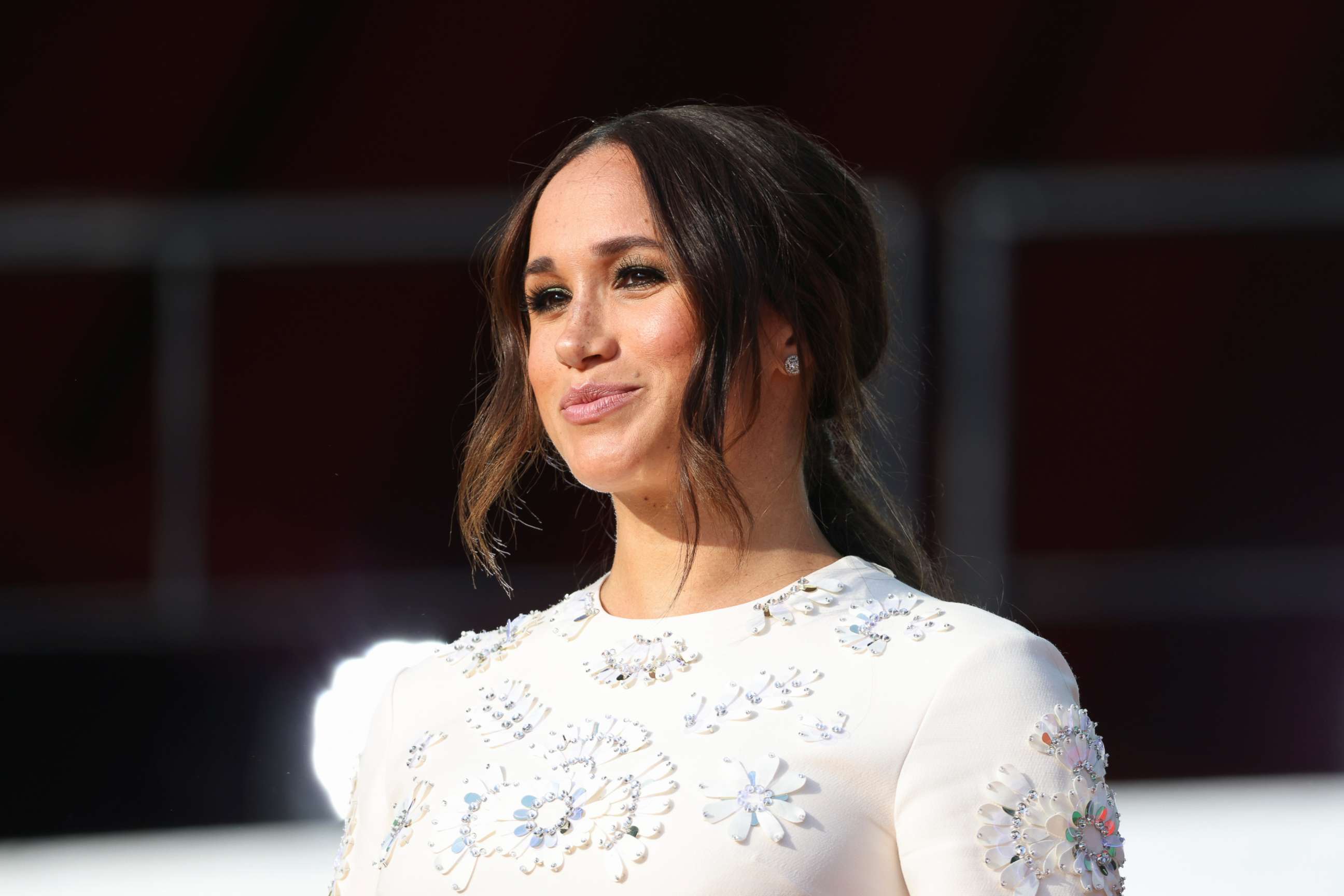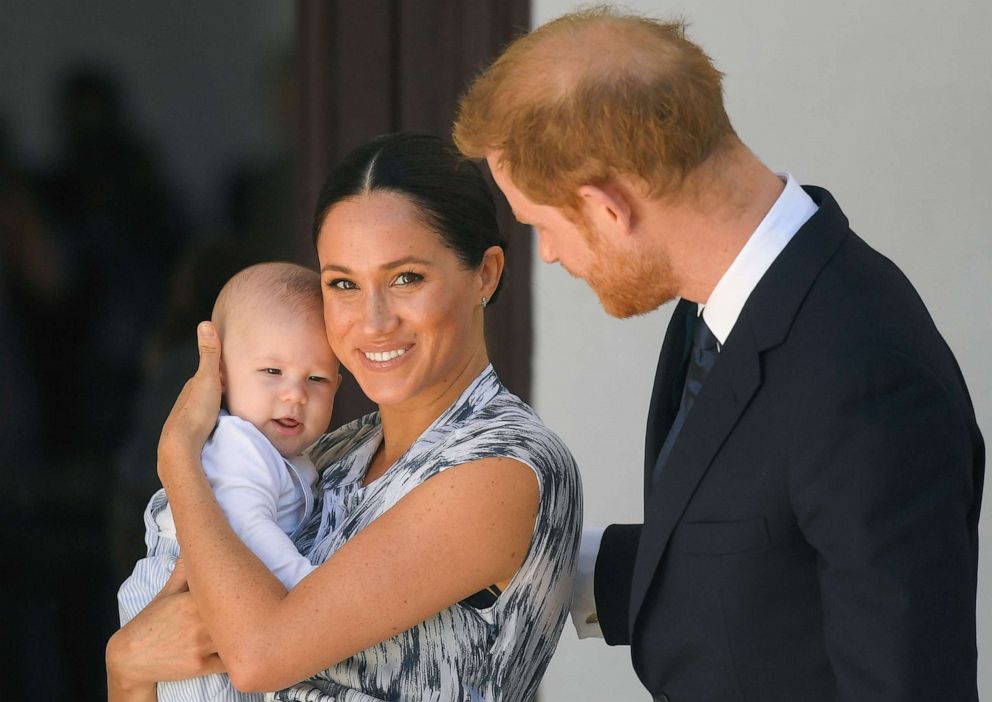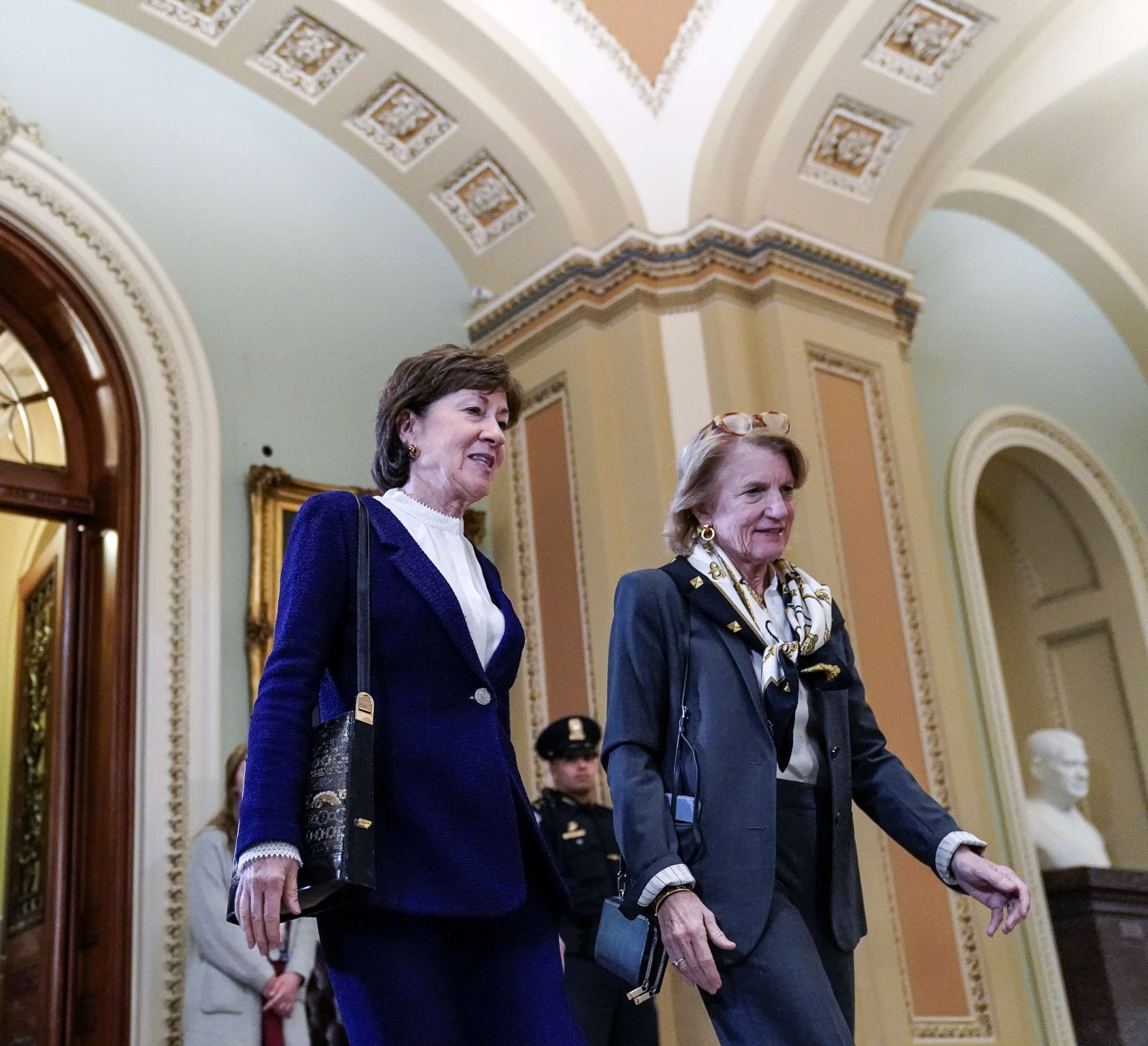Meghan Markle calling: Duchess lobbies Republican senators for paid family leave
The duchess of Sussex is the mother of two young children.
As House Democrats on Wednesday surprisingly moved to add paid family leave back into the $1.75 trillion social spending and climate policy bill -- word came that none other than Meghan Markle was lobbying senators on the issue -- personally.
In what might show that she's clued into congressional politics, she didn't go after West Virginia Democrat Joe Manchin -- who doesn't support including family leave in the spending bill -- but made calls to Republicans, trying to get their votes instead.

Markle, the mother of two young children, including a daughter born in June, phoned Manchin's West Virginia colleague, Sen. Shelley Moore Capito, who said she first thought it was Manchin, because the caller ID was blocked, in a story first reported by Politico.
"I’m in my car. I’m driving. It says ‘caller ID blocked’," the senator recounted, details confirmed by her spokesman. "I thought it was Senator Manchin. His calls come in blocked. And she goes, 'Senator Capito?' I said, 'Yes?' She said, 'This is Meghan, the duchess of Sussex.'"

Markle then called another, more moderate, Republican -- Susan Collins of Maine -- who was in the gym at the time and also thought it was Manchin on the phone, according to a source familiar with the matter.
The duchess once again pitched paid family leave, Collins said.
"Much to my surprise, she called me on my private line and she introduced herself as the duchess of Sussex, which is kind of ironic," Collins added.
"I was happy to talk with her, but I’m more interested in what the people of Maine are telling me about it," she said.

Last month, Markle, who now lives in the California with Prince Harry and their two children -- Lilibet Mountbatten-Windsor and Archie Mountbatten-Windsor -- posted a letter to Congress on the website PaidLeaveforAll.org advocating for paid family leave in the U.S.
"I'm not an elected official, and I'm not a politician. I am, like many, an engaged citizen and a parent. And because you and your congressional colleagues have a role in shaping family outcomes for generations to come, that's why I'm writing to you at this deeply important time—as a mom—to advocate for paid leave," Markle wrote.
In the letter, she describes how hard her family worked to provide for her growing up and how the pandemic has pushed millions of women out of the workforce.
"Over the past 20 months, the pandemic has exposed long-existing fault lines in our communities. At an alarming rate, millions of women dropped out of the workforce, staying home with their kids as schools and daycares were closed, and looking after loved ones full-time," she wrote. "The working mom or parent is facing the conflict of being present or being paid. The sacrifice of either comes at a great cost."
Markle acknowledged that she and her family in no way face the same challenges other families do when it comes to raising a family.
"Like any parents, we were overjoyed. Like many parents, we were overwhelmed," Markle wrote, recalling the moment she brought home her newborn daughter. "Like fewer parents, we weren't confronted with the harsh reality of either spending those first few critical months with our baby or going back to work. We knew we could take her home, and in that vital (and sacred) stage, devote any and everything to our kids and to our family. We knew that by doing so we wouldn't have to make impossible choices about childcare, work, and medical care that so many have to make every single day."
Markle noted that, unlike the U.S., most other nations already have paid leave policies for all workers.
"Many other countries have robust programs that give months of time for both parents (birth or adoptive) to be home with their child. The United States, in stark contrast, does not federally guarantee any person a single day of paid leave. And fewer than one in four workers has dedicated paid family leave through their employer. I'm sure you agree that if we are to continue to be exceptional, then we can't be the exception."
ABC News' Hannah Demissie contributed to this report.




